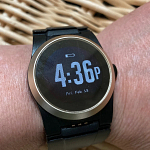Understanding the Importance of Medication Safety for Seniors
Medication safety is paramount for seniors due to their often complex health conditions and the potential for harmful medication interactions. Not only can improper medication management exacerbate existing health problems, but it can also lead to new health issues ranging from minor side effects to life-threatening conditions.

Potential Risks and Complications Associated with Medication Misuse
Medication misuse can lead to several serious risks and complications, such as allergic reactions, negative drug interactions, and even overdose. According to the Centers for Disease Control and Prevention, adults aged 65 years and older are more than twice as likely to visit the emergency department due to adverse drug events.
The Crucial Role of Caregivers in Ensuring Medication Safety
Caregivers play a critical role in ensuring medication safety for seniors. They can help manage medication schedules, monitor for side effects, and communicate with healthcare providers to ensure the correct usage of all prescribed medications. The AARP provides a comprehensive guide for caregivers on medication management.

Common Medication Errors in Seniors
As we age, the complexity of our health care often increases, raising the risk of medication errors. These mistakes can have serious consequences, particularly for seniors who may be managing multiple health conditions at once. Here are some common medication errors:
- Incorrect Dosage: This is an extremely common mistake in seniors. A study found that dosage errors account for 41% of fatal medication errors. Seniors may unintentionally take too much or too little of a medicine, leading to ineffective treatment or dangerous side effects.
- Taking Expired or Wrong Medication: With numerous prescriptions, it’s easy to mix up drugs or use expired ones. These can be ineffective or potentially harmful.
- Drug Interactions: Seniors often take multiple medications, risking harmful drug interactions. Always consult a pharmacist or physician when adding a new medication.
- Misunderstanding or Ignoring Medication Instructions: Some seniors may struggle with complex medication instructions, leading to non-adherence, overuse, or misuse. Clear communication with healthcare providers is crucial.
By being aware of these common errors, seniors and their caregivers can take steps to manage medications more effectively, improving overall health and well-being.
Effective Medication Management Strategies for Seniors and Caregivers
Managing medications effectively is crucial in ensuring the wellness of our elderly population. Here are three stellar strategies to help maintain medication safety:
- Keeping an Updated List of Medications
It’s essential to have a comprehensive, up-to-date list of all medications, including over-the-counter drugs, vitamins, and supplements. This medicine list provided by the FDA can serve as an excellent template. - Understanding the Purpose and Side Effects of Each Medication
Knowing why a medication is prescribed and its potential side effects empowers patients and caregivers, improving adherence and preventing adverse reactions. The MedlinePlus Drug Information is a reliable source. - Using Medication Reminders and Organizers
With the help of medication reminders and organizers, it’s easier to track and schedule doses, minimizing the risk of missed or double doses. Check out this research regarding the effectiveness of medication reminders.

Adopting these strategies can significantly enhance medication safety for seniors, reducing the risk of medication errors and fostering better health outcomes.
The Role of Health Care Providers in Ensuring Medication Safety
Healthcare providers play a crucial role in medication safety, particularly for seniors and their caregivers. This role is multifaceted and involves regular review of medication regimen, pharmacist consultations, and open communication.
Regular Review of Medication Regimen by Physicians
Physicians are at the forefront of medication safety, regularly reviewing and adjusting medication regimens based on a senior’s health status. They evaluate effectiveness, monitor side effects, and prevent drug interactions.

Importance of Pharmacist Consultations
Pharmacists offer critical consultations to ensure medications are taken correctly. They provide advice on dosage, timing, and potential side effects, contributing to overall medication safety.

Open Communication Between Seniors, Caregivers, and Healthcare Providers
Open communication fosters a safe medication environment. Seniors and caregivers should feel comfortable asking questions about medications. Clear, honest communication helps prevent medication errors.

Importance of Adherence to Medication Regimen
Adherence to a medication regimen is a critical aspect of healthcare, particularly for seniors. Studies suggest that medication non-adherence leads to increased morbidity, mortality, and healthcare costs.
Consequences of Non-Adherence to Medication Regimen
Non-adherence can result in suboptimal health outcomes, including exacerbation of disease, reduced functional abilities, lower quality of life, and increased hospital admissions. The World Health Organization estimates that 50% of patients with chronic diseases do not take medications as prescribed.
Strategies to Improve Adherence
- Use of medication reminders and pill organizers.
- Regular patient education about the importance and method of medication adherence.
- Implementing simplified drug regimens.
- Improving patient-provider communication.
Role of Caregivers in Monitoring Adherence
Caregivers play a crucial role in helping seniors adhere to their medication routines. They can assist with medication management, provide reminders, and monitor for side effects. The Centers for Disease Control and Prevention offer resources for caregivers to help with medication safety.

Understanding Polypharmacy and Its Potential Dangers
Polypharmacy, the concurrent use of multiple medications by a patient, can pose serious health risks, particularly for seniors. With an increasing number of prescriptions, the risk of adverse drug events (ADEs) like drug-drug interactions and overdoses also escalates. The CDC reports that ADEs cause over 1 million emergency department visits each year, a significant portion of which are linked to polypharmacy.
Strategies to Manage and Prevent Polypharmacy
- Regular medication reviews: Ensuring that each medication is still necessary helps in reducing the number of drugs.
- Employing a simpler regimen: By using combination drugs or decreasing the frequency of doses.
Role of Healthcare Providers in Managing Polypharmacy
Healthcare providers play a pivotal role in managing polypharmacy. They can conduct comprehensive medication reviews, educate patients about potential drug interactions, and adjust drug regimens as necessary. The AHRQ provides a comprehensive guide on how healthcare providers can optimize medication safety.

Technology Tools for Medication Management
In the digital age, myriad technology tools are available to aid medication management. These include mobile applications like Medisafe and Mango Health, and electronic devices like automatic pill dispensers.

Improving Medication Safety and Adherence
These tools can significantly improve medication safety and adherence. Apps typically provide medication reminders, drug interaction warnings, and refill reminders. Electronic pill dispensers can prevent overdosing by dispensing the correct dosage at preset times.
Choosing the Right Tool
When choosing a medication management tool, consider the user’s technological proficiency, the complexity of their medication regimen, and their specific needs. A tool’s ease of use, functionality, and reliability should be paramount considerations.
Empowering Seniors for Self-Care: Key to Addressing Medication Safety
When it comes to medication safety, one cannot overemphasize the importance of involving seniors in their own care. Allowing seniors to play an active role in their healthcare not only fosters independence but also enhances medication adherence. It’s a subtle yet powerful way of improving their overall wellbeing.

Yet, self-care isn’t possible without sufficient knowledge. Hence, educating seniors about their medications is vital. By understanding their medication regimen, seniors can avoid potentially harmful medication errors, improving safety and efficacy.
This education should be a shared responsibility between seniors, caregivers, and healthcare professionals. Caregivers are particularly crucial in this respect. They can employ various strategies to encourage self-care without compromising safety.
- Maintaining a medication list: A comprehensive list can help seniors manage their medications effectively and avoid harmful drug interactions.
- Use of medication aids: Tools like pillboxes and medication reminders can ensure correct dosages at the right times.
- Regular follow-ups: Regular appointments with healthcare providers ensure ongoing monitoring and adjustment of medication regimens as needed.
With a combined approach of education and empowerment, we can create an environment where seniors are safe, confident, and autonomous in managing their medications.





